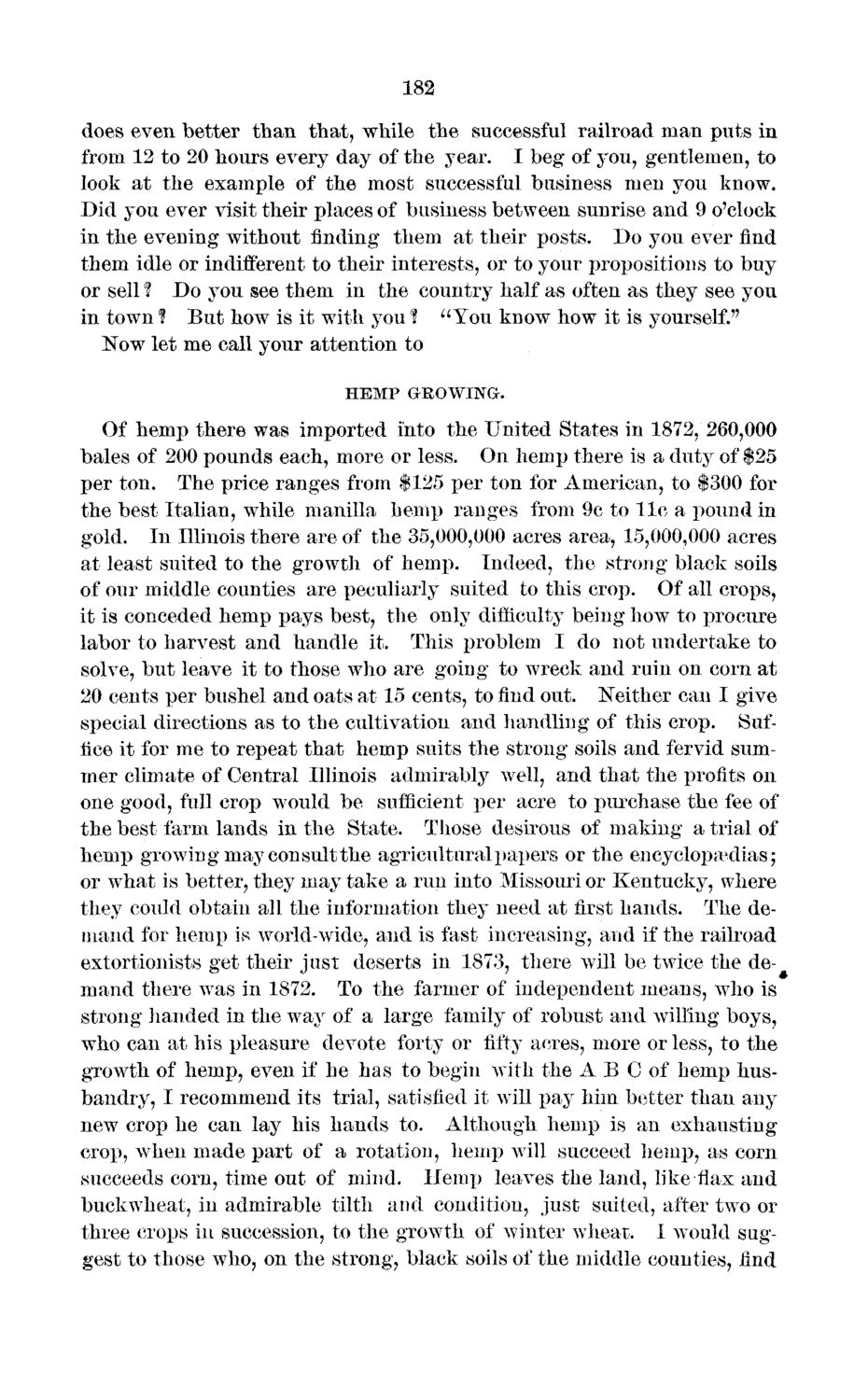| |
| |
Caption: Board of Trustees Minutes - 1873
This is a reduced-resolution page image for fast online browsing.

EXTRACTED TEXT FROM PAGE:
182 does even better than that, while the successful railroad man puts in from 12 to 20 hours every day of the year. I beg of you, gentlemen, to look at the example of the most successful business men you know. Did you ever visit their places of business between sunrise and 9 o'clock in the evening without finding them at their posts. Do you ever find them idle or indifferent to their interests, or to your propositions to buy or sell ? Do you see them in the country half as often as they see you in town ? But how is it with you ! "You know how it is yourself." Now let me call your attention to HEMP GROWING. Of hemp there was imported into the United States in 1872, 260,000 bales of 200 pounds each, more or less. On hemp there is a duty of $25 per ton. The price ranges from $125 per ton for American, to $300 for the best Italian, while manilla hemp ranges from 9c to l i e a pound in gold. In Illinois there are of the 35,000,000 acres area, 15,000,000 acres at least suited to the growth of hemp. Indeed, the strong black soils of our middle counties are peculiarly suited to this crop. Of all crops, it is conceded hemp pays best, the only difficulty being how to procure labor to harvest and handle it. This problem I do not undertake to solve, but leave it to those who are going to wreck and ruin on corn at 20 cents per bushel and oats at 15 cents, to find out. Neither can I give special directions as to the cultivation and handling of this crop. Suffice it for me to repeat that hemp suits the strong soils and fervid summer climate of Central Illinois admirably well, and that the profits on one good, full crop would be sufficient per acre to purchase the fee of the best farm lands in the State. Those desirous of making a trial of hemp growing may con suit the agricultural papers or the encyclopaedias; or what is better, they may take a run into Missouri or Kentucky, where they could obtain all the information they need at first hands. The demand for hemp is world-wide, and is fast increasing, and if the railroad extortionists get their just deserts in 1873, there will be twice the demand there was in 1872. To the farmer of independent means, who is strong handed in the way of a large family of robust and willing boys, who can at his pleasure devote forty or fifty acres, more or less, to the growth of hemp, even if he has to begin with the A B C of hemp husbandry, I recommend its trial, satisfied it will pay him better than any new crop he can lay his hands to. Although hemp is an exhausting crop, when made part of a rotation, hemp will succeed hemp, as corn succeeds corn, time out of mind. Hemp leaves the land, like flax and buckwheat, in admirable tilth and condition, just suited, after two or three crops in succession, to the growth of winter wheat}. 1 wxmld suggest to those who, on the strong, black soils of the middle counties, find
| |